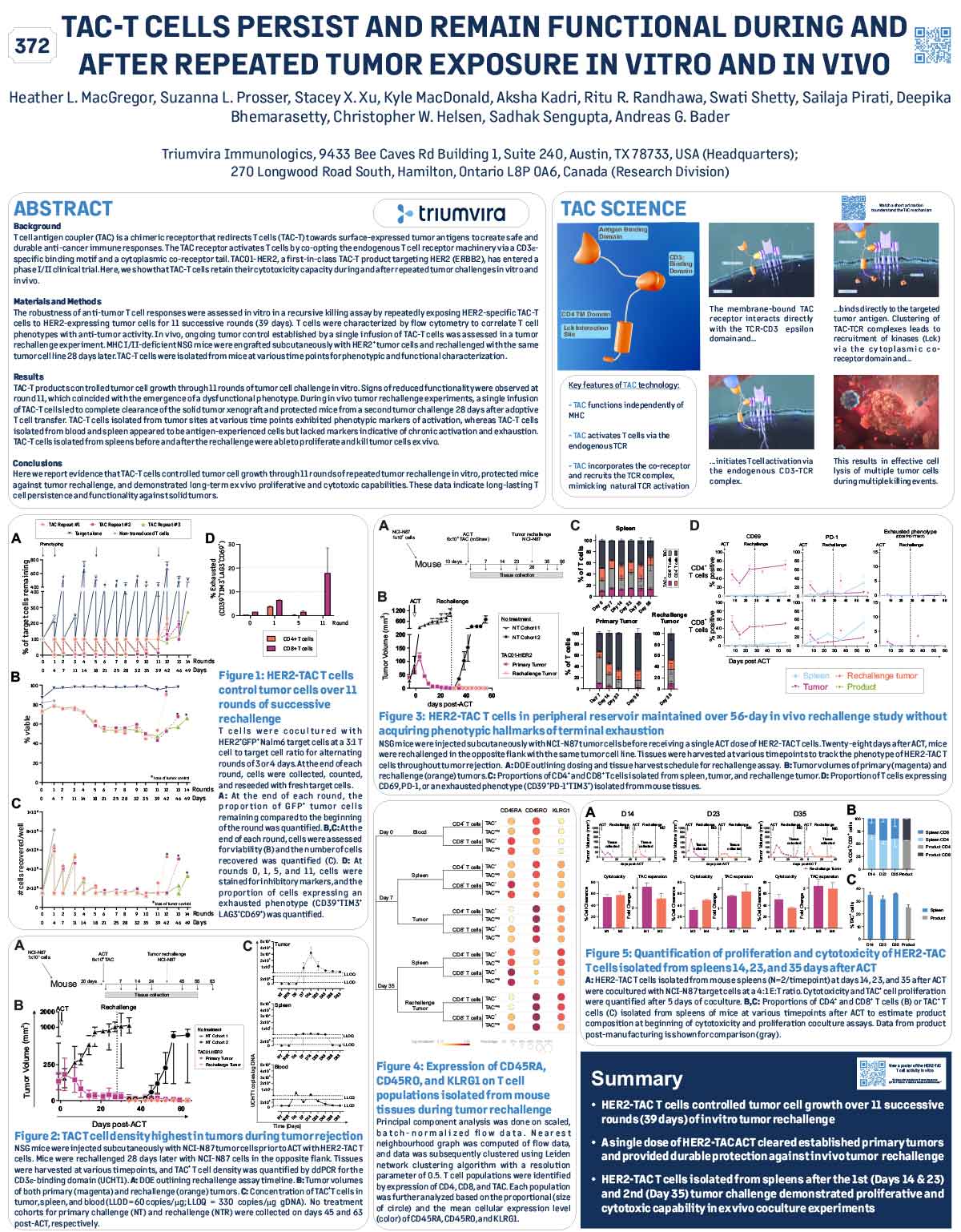ABSTRACT
Background
T cell antigen coupler (TAC) is a chimeric receptor that redirects T cells (TAC-T) towards surface-expressed tumor antigens to create safe and durable anti-cancer immune responses. The TAC receptor activates T cells by co-opting the endogenous T cell receptor machinery via a CD3e-specific binding motif and a cytoplasmic co-receptor tail. TAC01-HER2, a first-in-class TAC-T product targeting HER2 (ERBB2), has entered a phase I/II clinical trial. Here, we show that TAC-T cells retain their cytotoxicity capacity during and after repeated tumor challenges in vitro and in vivo.
Materials and Methods
The robustness of anti-tumor T cell responses were assessed in vitro in a recursive killing assay by repeatedly exposing HER2-specific TAC-T cells to HER2-expressing tumor cells for 11 successive rounds (39 days). T cells were characterized by flow cytometry to correlate T cell phenotypes with anti-tumor activity. In vivo, ongoing tumor control established by a single infusion of TAC-T cells was assessed in a tumor rechallenge experiment. MHC I/II-deficient NSG mice were engrafted subcutaneously with HER2+ tumor cells and rechallenged with the same tumor cell line 28 days later. TAC-T cells were isolated from mice at various time points for phenotypic and functional characterization.
Results
TAC-T products controlled tumor cell growth through 11 rounds of tumor cell challenge in vitro. Signs of reduced functionality were observed at round 11, which coincided with the emergence of a dysfunctional phenotype. During in vivo tumor rechallenge experiments, a single infusion of TAC-T cells led to complete clearance of the solid tumor xenograft and protected mice from a second tumor challenge 28 days after adoptive T cell transfer. TAC-T cells isolated from tumor sites at various time points exhibited phenotypic markers of activation, whereas TAC-T cells isolated from blood and spleen appeared to be antigen-experienced cells but lacked markers indicative of chronic activation and exhaustion. TAC-T cells isolated from spleens before and after the rechallenge were able to proliferate and kill tumor cells ex vivo.
Conclusions
Here we report evidence that TAC-T cells controlled tumor cell growth through 11 rounds of repeated tumor rechallenge in vitro, protected mice against tumor rechallenge, and demonstrated long-term ex vivo proliferative and cytotoxic capabilities. These data indicate long-lasting T cell persistence and functionality against solid tumors.

